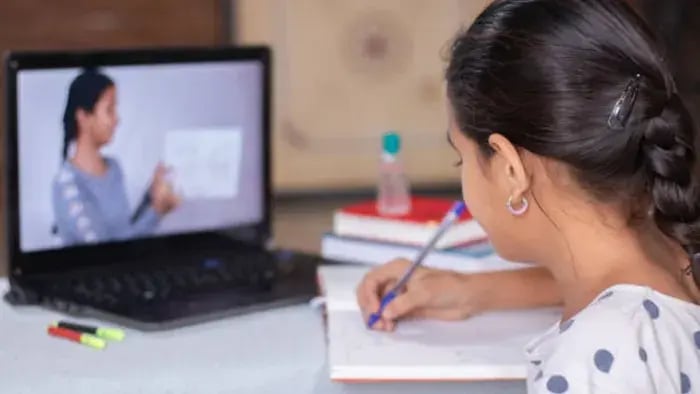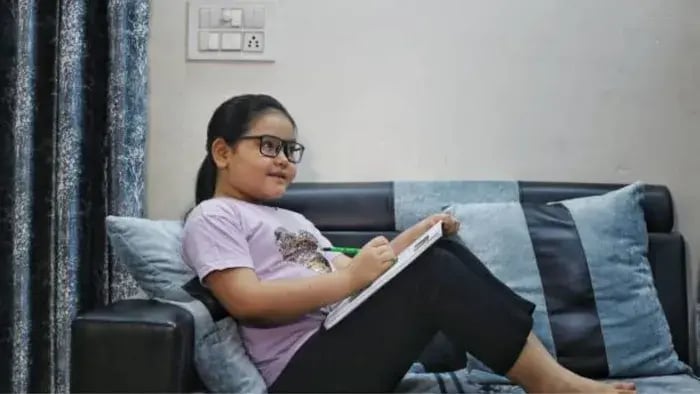- Start with a Killer Opening Line
- Focus on One Main Theme or Memory
- Use Simple Words but Specific Descriptions
- Write in the First Person And Share Personal Experiences
- Include a Feeling or Learning
- Keep the Sentences Connected
- End with a Small Reflection or Happy Note
Introduction

Summer holidays give kids a break from the school routine and open the door to fun, freedom, and new experiences. Whether it’s spending more time with family, going out and about locally, or just chilling at home, every day is different. These little moments, like learning to ride a bike, cooking with a parent, or watching the rain, are worth putting into words.
Writing about summer holidays helps kids stop and think about what they really enjoyed. It is a way for kids to say how they felt, what they discovered, and what made them happy. Every child’s story is unique, whether it’s big adventures or quiet joys.
Getting kids to write a paragraph about their holidays also helps build their confidence in communication. From young learners just starting to get to grips with language to older kids developing their style, this little activity supports them in many ways. With the right approach, their holiday writing can feel more like sharing than schoolwork – personal, honest, and relatable.
The aim is to get your child to write something that feels like their voice, not just a list of events, but a reflection of themselves and their experience.
Tips To Write a Summer Vacation Paragraph That Is Perfect For Any Age

Writing about your summer vacation is about showing what made it special. You can be in elementary or high school, but the way you tell your story can turn even the most mundane moments into something awesome. The goal is not to impress with big words or long sentences but to make someone feel what you felt.
A good summer vacation paragraph captures the feeling of freedom, discovery, and happiness. It brings small details to life, like the smell of mangoes, the sound of the train ride to Nani’s house, or the fun of dancing in the rain.
Start with a Killer Opening Line
The first line sets the tone. Instead of saying “My summer vacation was fun,” try something more vivid like “The best part of my summer was waking up early just to chase the ice cream cart.” A personal touch grabs attention and makes readers want to know more.
Start with a moment, feeling, or image that meant something to you. This adds personality to your writing and makes your paragraph stand out from the rest.
Focus on One Main Theme or Memory
Don’t try to fit everything into one paragraph; focus on one experience that stood out, visiting cousins, learning to swim, planting flowers, or celebrating a family festival. Pick what felt most exciting or meaningful to you. Writing about one moment lets you give more detail, which makes your paragraph sound complete.
Use Simple Words but Specific Descriptions
You don’t need big words to make your writing shine. What matters is how clearly you describe things. Instead of saying, “I had fun at the beach,” say, “I built a huge sandcastle and watched the waves crash into it again and again.” Sensory words, like how things looked, smelled, or sounded, help bring your story to life.
Write in the First Person And Share Personal Experiences
Let your voice come through, use “I” and speak as you would naturally. Think of it as telling a friend about your holiday. This makes your writing feel warm and personal. Don’t worry about sounding perfect, focus on being honest and clear. Your paragraph should feel like it truly came from you.
Include a Feeling or Learning
Think about how you felt during that moment. Did it teach you something new? Maybe helping your grandparents made you feel more responsible, or speaking on stage at a family event helped you discover your courage. When you include your emotions—like feeling happy, nervous, or excited—it makes your paragraph deeper and more relatable. Even young children can share how they felt to bring their experiences to life.
Keep the Sentences Connected
Make sure one sentence flows into the next. Don’t jump from one idea to another without a link. For example, if you’re talking about your trip to the hills, describe what you did there, who was with you, and what made it fun, all in a connected way. This helps your paragraph feel like a story and not just a list of things you did.
End with a Small Reflection or Happy Note
Finish your paragraph with a sentence that wraps up your memory. You can share how you felt about the whole experience or what you’ll remember most. Something like, “Even though my hands got messy with colours, Holi at home this year is something I’ll always remember,” leaves a sweet afterthought for your reader.
Conclusion

Your summer vacation paragraph doesn’t have to be long or perfect; it just needs to feel real. Whether you’re in Class 2 or Class 10, your experiences matter, and your words can make them shine. Stick to one memory, keep it clear, and write from the heart. That’s what makes your paragraph stand out, no matter your age.
Her love for storytelling began with reading her grandfather’s speeches, where Tarishi saw the power of words in creating lasting memories. Combining her passions for food and writing, she has turned her life into a fulfilling path of sharing stories that celebrate flavours and how food brings communities together.
The views expressed are that of the expert alone.
The information provided in this content is for informational purposes only and should not be considered a substitute for professional medical advice, diagnosis, or treatment. Always seek the advice of your physician or another qualified healthcare provider before making any significant changes to your diet, exercise, or medication routines.
















